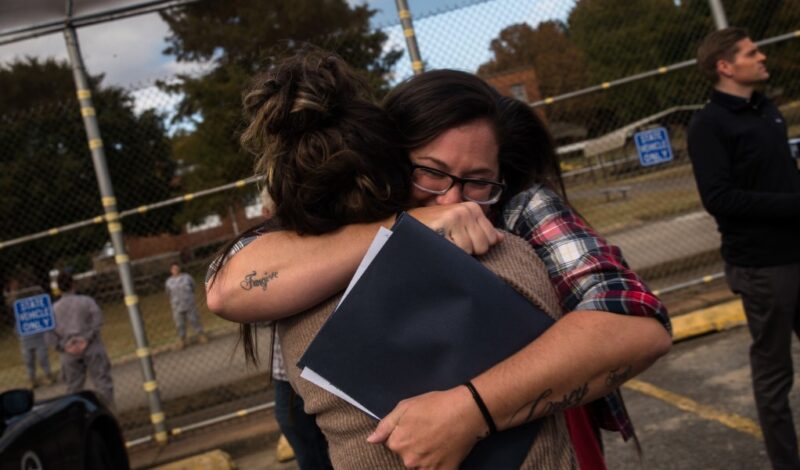Reentering society after years behind bars can feel like stepping into a different world altogether. The cacophony of bustling streets, the rapid pace of technology, and the shimmering veil of freedoms long taken for granted can be overwhelming.
For many recently released prisoners, this sudden shift is not just disorienting; it often ignites a profound sense of anxiety. Stripped of routines and the predictability of prison life, they confront the daunting realities of job hunting, reestablishing connections, and navigating societal expectations—all under the weight of a past that can feel inescapable.
As they struggle to find their footing in a landscape rife with obstacles, the emotional turmoil can spiral. This exploration delves into why anxiety is not merely common, but almost a collective experience among those who have transitioned from confinement to freedom, shedding light on the psychological hurdles that accompany such a significant life change.
The Transition from Incarceration to Freedom
The journey from incarceration to freedom is fraught with a whirlwind of emotions and challenges that can leave even the strongest individuals feeling overwhelmed. As they step outside the prison walls, released prisoners are greeted by a world that often feels alien and unforgiving.
The smell of fresh air may be intoxicating, yet it quickly mingles with the harsh realities of societal expectations, financial instability, and strained relationships. Many grapple with a tumultuous surge of anxiety, stemming from the pressure to find employment, reintegrate with family, and navigate a system that can seem impenetrable.
As they strive to reclaim their identities, the weight of their past looms large, setting the stage for a complex emotional landscape where hope and trepidation coexist in an uneasy balance. Understanding this transition is crucial, for it sheds light on the myriad reasons why anxiety frequently shadows those who have just regained their freedom.

The Psychological Impact of Incarceration
The psychological impact of incarceration can be profound and multifaceted, often manifesting in ways that are both subtle and overt. For many, the experience of confinement is not merely a physical ordeal; it can plunge individuals into a deep well of anxiety that lingers long after they step outside the prison gates.
Imagine the stark contrast between the regimented life behind bars and the chaotic freedom of the outside world—such a jarring transition can unleash torrents of fear and uncertainty. Those recently released may find themselves grappling with a pervasive sense of isolation, exacerbated by damaged relationships and societal stigma.
The echoing silence of a prison cell may be replaced by the overwhelming noise of urban life, leading to sensory overload. Consequently, the cumulative weight of these emotional burdens can foster a persistent state of anxiety, making it challenging for individuals to navigate their reintegration into society while carrying the invisible scars of their past.
Inadequate Preparation for Reentry into Society
The transition from prison life to the outside world can feel like stepping onto an alien planet for many recently released prisoners. The stark contrast between the controlled environment of incarceration and the chaotic reality of societal freedom breeds an overwhelming sense of vulnerability.
With minimal preparation for reentering society, individuals often find themselves grappling with a myriad of obstacles—limited job prospects, strained familial connections, and the stigma attached to their past. This inadequacy fuels anxiety, as many struggle to navigate the complexities of everyday life.
A lack of resources, such as support networks or accessible mental health services, exacerbates feelings of isolation and uncertainty. Ultimately, the failure to adequately equip individuals for this daunting transition not only undermines their ability to reintegrate but also perpetuates a cycle of anxiety and despair that can linger long after their release.

Conclusion
In conclusion, the pervasive anxiety experienced by recently released prisoners can be attributed to a myriad of interconnected factors, including the challenges of reintegration, stigmatization, and the lack of adequate support systems.
The transition from incarceration to freedom is often fraught with uncertainty and fear, particularly for individuals like a black man re-entering society, who may face additional societal pressures and discrimination.
Addressing these issues requires a collective effort from communities, policymakers, and support organizations to create a more inclusive environment that fosters healing and stability.
By recognizing and understanding the root causes of anxiety in this population, we can work towards developing effective interventions and support networks that empower individuals to rebuild their lives and successfully navigate the complexities of post-prison life.


